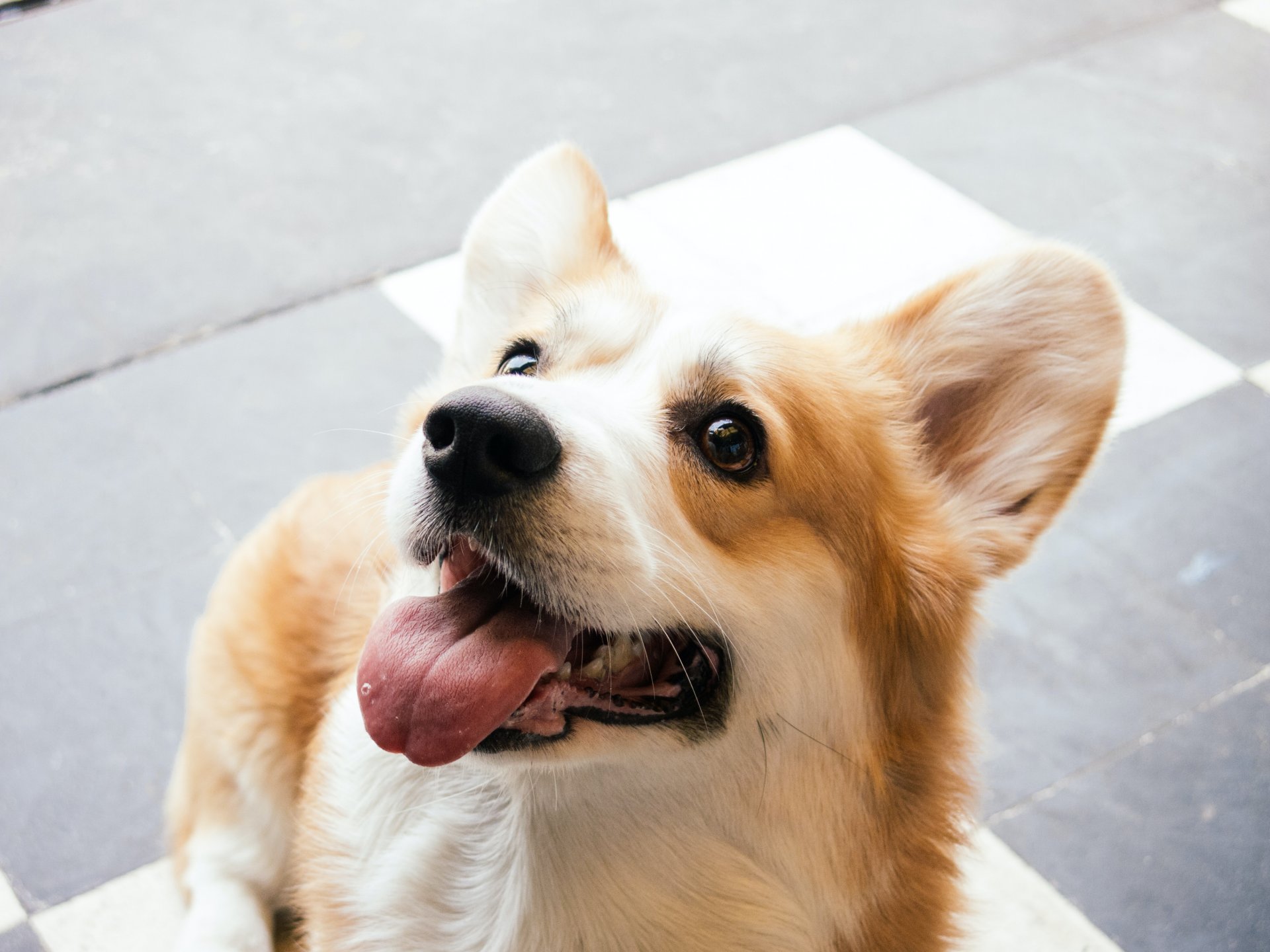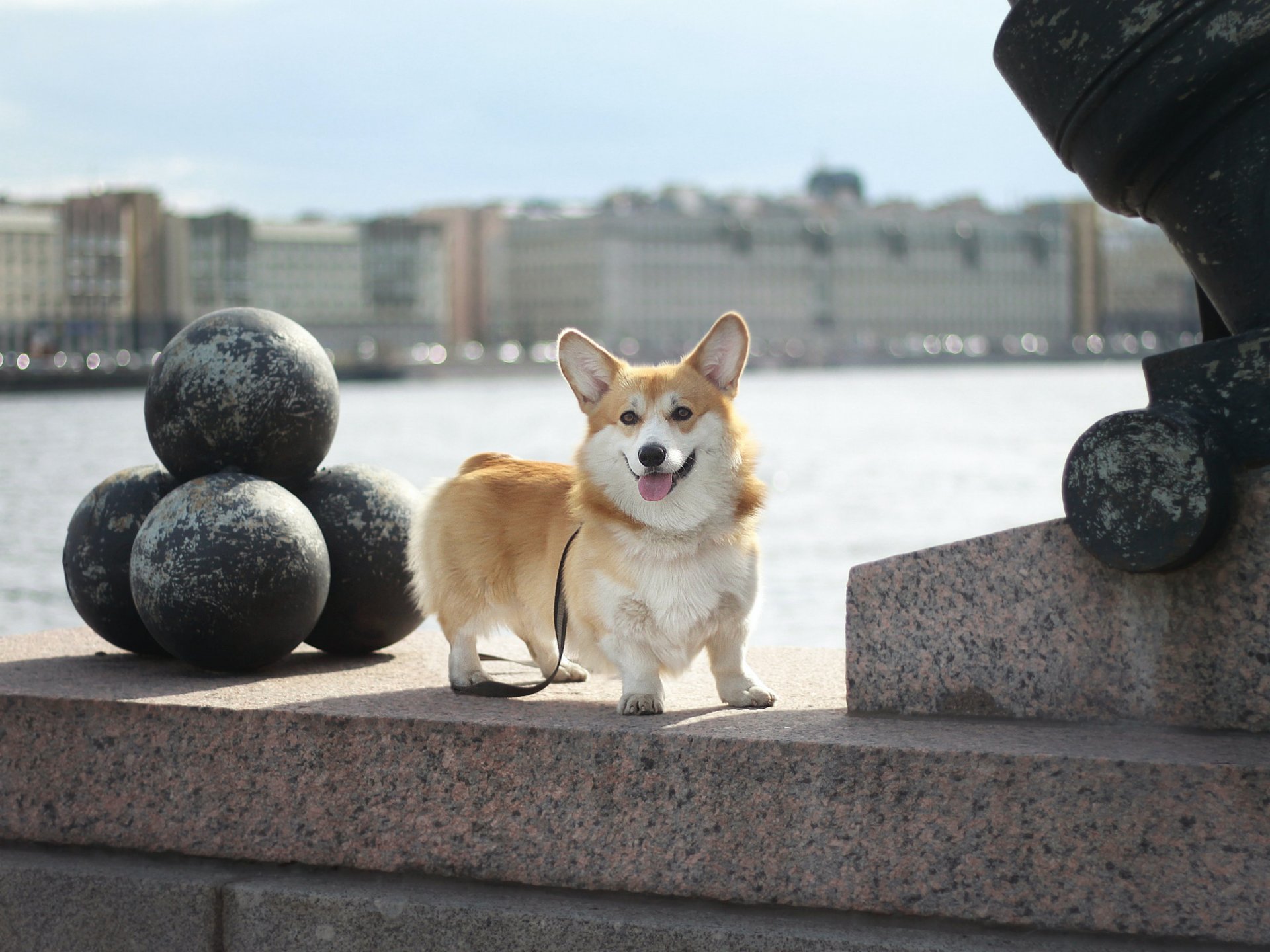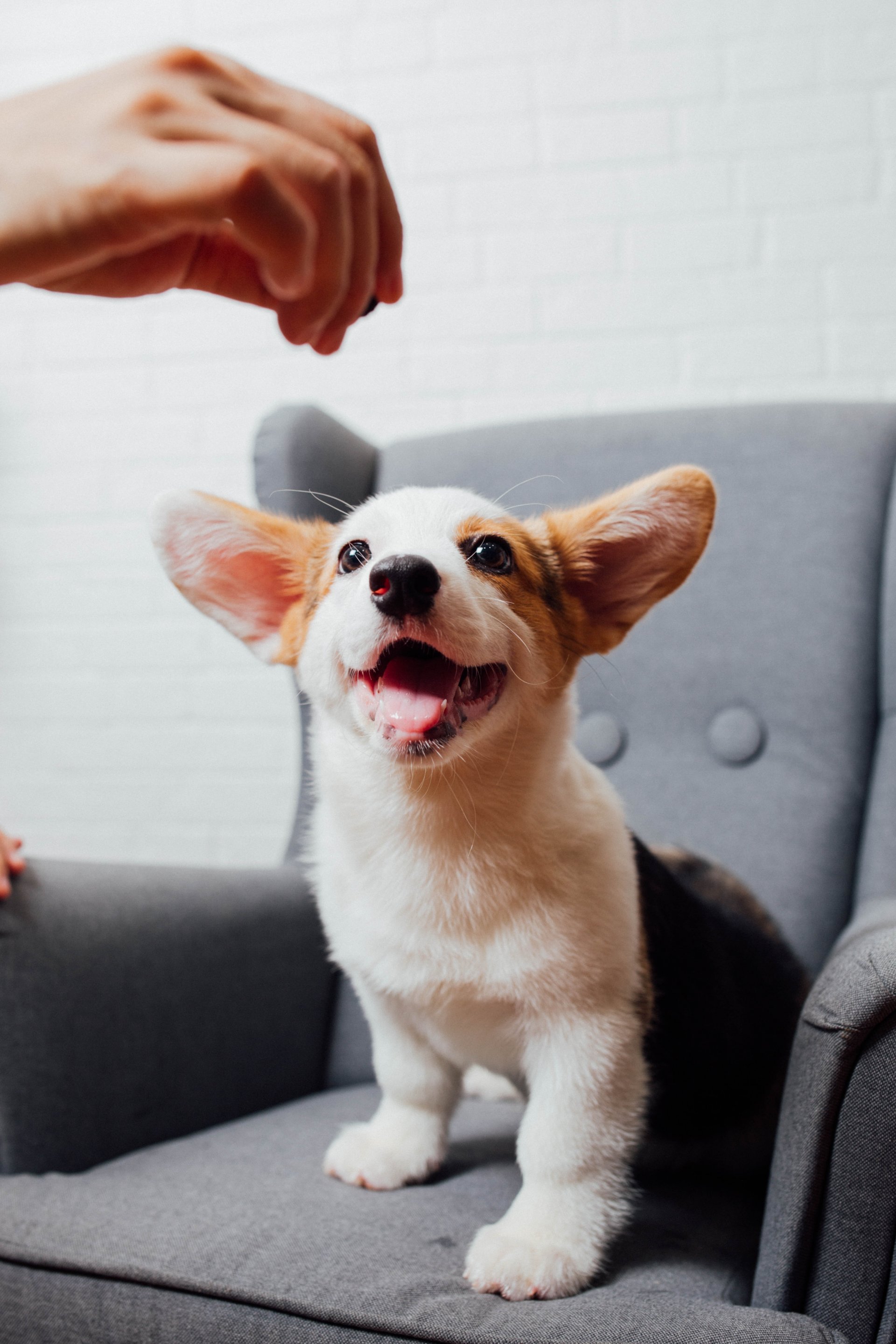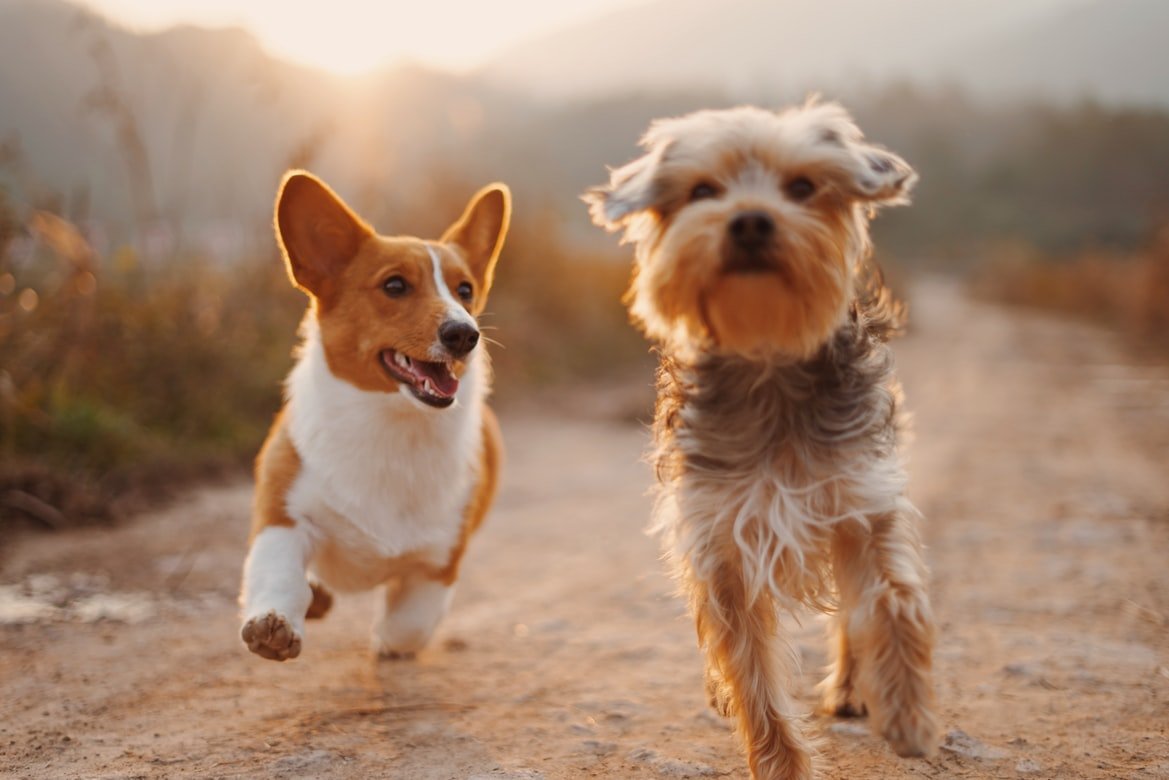A great all-rounder dog that enjoys being active and learning
 This lovely little dog breed is easily recognisable with its big ears, long body, and short legs. Of the 2 corgi variations, the Pembroke corgi is the smallest.
This lovely little dog breed is easily recognisable with its big ears, long body, and short legs. Of the 2 corgi variations, the Pembroke corgi is the smallest.
It might surprise Corgi novices, but they’re actually a hardy working breed. Originally trained to help herd sheep and cattle, they love being active and kept busy.
Do I need a dog trainer?
What does the Corgi look like?
This small herding dog breed has a bold look, often being described as ‘fox-like’. They have short legs with a long back in comparison which gives the impression of sturdiness.
They usually stand at a height of 24-31cms at the shoulder with a healthy weight of between 9 and 12kgs.
According to the British Kennel Club, they come in just 4 breed standard colours, including:
- Fawn and white,
- Red and white,
- Sable and white
- And Tricolour.
They often have some white markings on their bodies which are usually on their legs, neck, or face.
Did you know?
They are actually a firm favourite of the reigning Queen Elizabeth who has loved them since she was given a Corgi puppy as a little girl.
Grooming a Corgi
 They have a medium-length double coat and are prolific shedders. This means they aren’t well suited to those with a dog allergy. Due to their double coat shedding heavily, you’ll need to be happy with a little mess and have a great vacuum cleaner.
They have a medium-length double coat and are prolific shedders. This means they aren’t well suited to those with a dog allergy. Due to their double coat shedding heavily, you’ll need to be happy with a little mess and have a great vacuum cleaner.
Find hypoallergenic dogs of all sizes
As long as you’re regular with their brushing to get rid of shed hair, Pembroke Corgis tend to be quite easy to groom. As a suggestion, you should look to brush at least every other day and bathe when necessary.
Guide to at-home dog grooming
The temperament of the Pembroke Welsh Corgi
If you’re looking for a dog breed that bonds deeply with their owners, then the Pembroke Corgi is a good option. They’re frequently described by their human family as being loving and affectionate.
They are an incredibly intelligent breed who will need plenty of mental and physical stimulation to be happy long-term. They were bred to be working dogs, so need to be kept active with at least 1-2 hours of exercise a day.
They make a great option for families looking for a dog, but with their history of herding, you might find that small children are herded against their will!
Did you know?
There’s actually a legend behind this majestic breed. It’s said that this magical dog was used to pull Welsh fairy and elves coaches.
Training your Pembroke Welsh Corgi
With any intelligent breed of dog, they’ll be happy to learn but might think that their own way of doing things is the better option.
If you’re looking to train your Corgi canine, positive reward-based training usually proves fruitful as a way of encouraging correct behaviour.
Guide for positive puppy training
As with any other dog breed, thorough and early socialisation is important to make sure they’re well-adjusted dogs. It will make your life easier as a dog owner and improve your dog’s quality of life.
Tips for socialising your puppy
What type of owners do Pembroke Corgis suit?
 As they’re generally pretty happy to try to please their humans, they’re a good option for most pet owners. However, because they need plenty of mental and physical stimulation, they are often well suited for dog owners with at least a little experience.
As they’re generally pretty happy to try to please their humans, they’re a good option for most pet owners. However, because they need plenty of mental and physical stimulation, they are often well suited for dog owners with at least a little experience.
Read our doggy bucket list for activity ideas!
They often make great watchdogs, so suit everything from single owners who are home often to families. However, they can be a little hesitant at engaging with strangers because of this. Even going as far as to bark at those they perceive as being a danger to their family.
One of their must-haves is a family that’s happy to be active with them. Don’t let their little legs fool you! They love getting out and being active, exploring outside or enjoying exercise in the garden.
Top dogs that suit country living
Find your Forever Puppy
 Regardless of whether the Pembroke Welsh Corgi is right for you, it’s incredibly important to do some research before committing to buy or adopt a puppy/dog.
Regardless of whether the Pembroke Welsh Corgi is right for you, it’s incredibly important to do some research before committing to buy or adopt a puppy/dog.
There will always be some individual personality differences, but some dog breeds will suit only experienced owners. Whereas others may only be happy with owners who are home for most of the day.